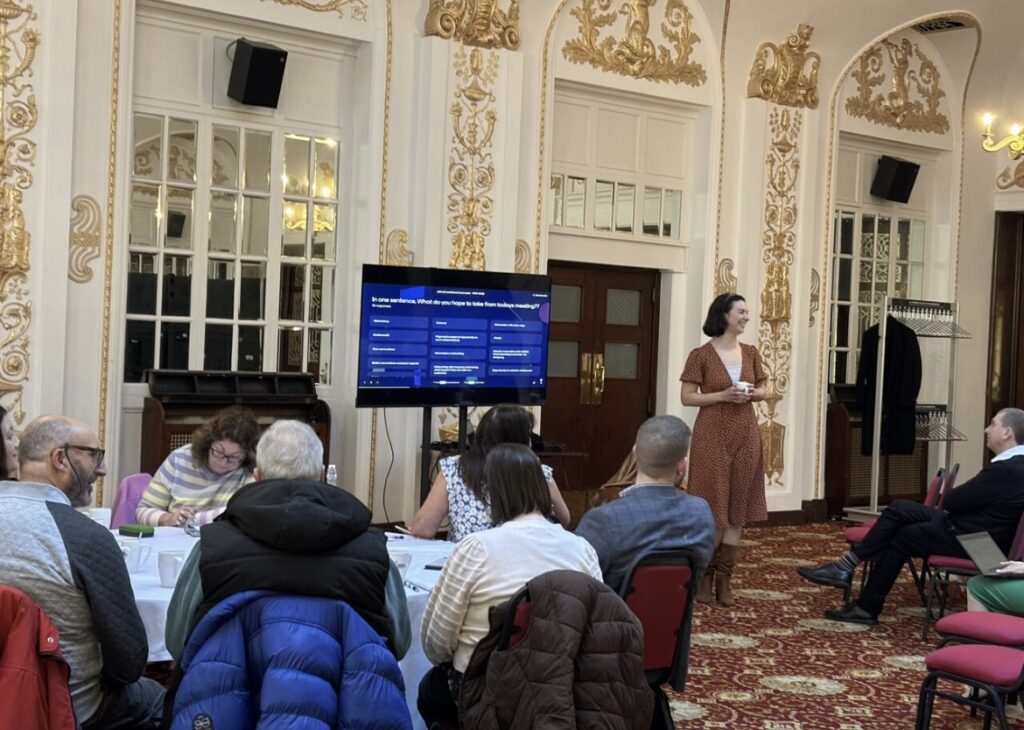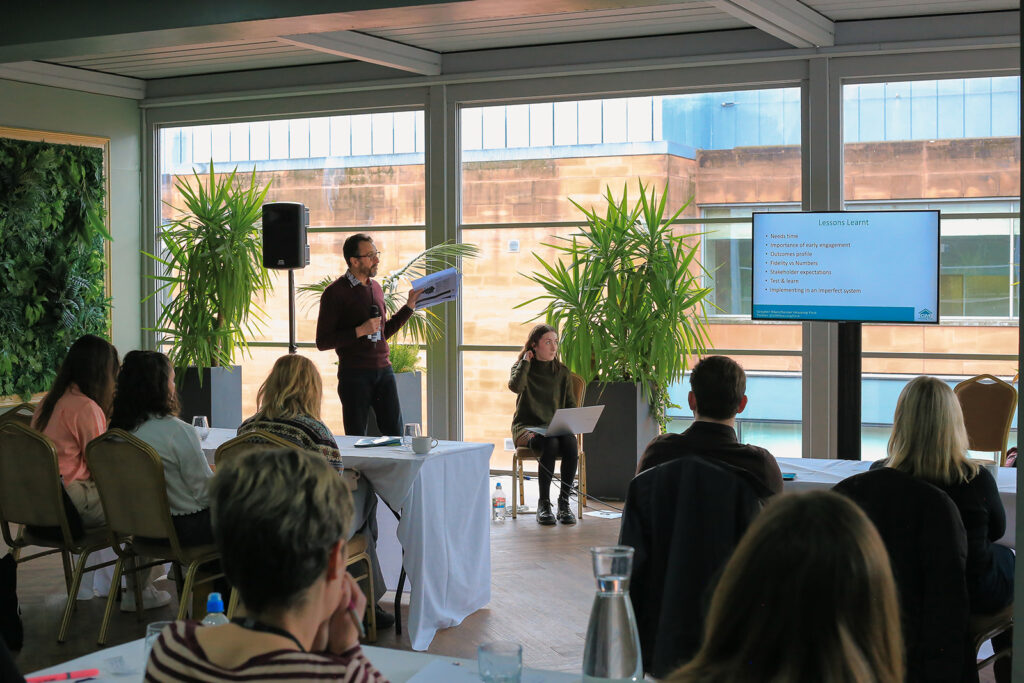Understanding the work that needs to happen locally to Resolve Poverty
Last week, myself and our Managing Director, Helen Furnivall, attended Resolve Poverty’s 2025 annual conference, with a day of full of discussion around community action, policy, and the mission to end poverty. Founded by Graham Whitham in 2016, Resolve has quickly expanded in nine short years from a regional player in Greater Manchester to a prominent national body working to end poverty.
Counting a number of third sector organisations as clients at High-Rise, we felt Resolve’s 2025 conference presented a unique opportunity to enhance our communications strategy. With the charity’s national relaunch and their growing reach, the event brought together several exciting actors working on solutions to tackle poverty at every level of our society.
Upon arriving at the conference in Manchester Hall, the mood from conference goers was overwhelmingly optimistic. Representatives from civil society, voluntary groups, and the private sector alike all shared a renewed sense of enthusiasm as the government places ending poverty at the heart of the political agenda.
Workshops
Throughout the day, Helen and I joined multiple workshops put on by regional game changers showcasing their community-based solutions to tackle poverty. During my morning session on housing support, talks from Housing First and @Homes, carefully walked through their new approaches to housing insecurity, with the current system seeing almost 1 in 5 users slip through the cracks.

After a quick lunch on Manchester Hall’s terrace, I made my way towards my afternoon session. ‘The role of regions and localities in the national mission to end poverty,’ saw officials from York Council, The Northeast Combined Authority (NECA), and Greater Manchester Combined Authority (GMCA) explain through their respective anti-poverty strategies.
Surprised to learn only 13% of councils currently have an active strategy, the panel underscored local government still had a long way to go in this arena. Keeping an eye on the future, the local authority leaders spoke at length about the emerging possibilities under the government’s new devolution agenda. The strengthening of additional powers and financial backing remain at the top of council’s lists in promised tools to help end poverty in their communities.
Keynote speech
The day ended with a keynote speech from Resolve Poverty’s founder. Graham’s emphasis about the new opportunities for local authorities to tackle poverty gave me a renewed sense of optimism. His remarks set the stage perfectly for the introduction of James Wolfe, Director at the Department of Work and Pensions (DWP) and co-author of Whitehall’s upcoming anti-poverty strategy.
Wolfe went on to highlight some of his personal takeaways from the conference itself. Describing it as eye opening to see so many voluntary organisations at the event, and the government’s renewed commitment to engage with the wider charity sector throughout this parliament.

Helen and I left the conference deeply moved by the work these organisations undertake each and every day. I’d wholeheartedly recommend attending next year’s conference to anyone passionate about Resolve’s mission.
Here at High-Rise we can support with events and representing your story in the media. Ready to tell your unique story? Contact us here for more information.
